
Three Year 12 pupils successfully hosted what is believed to have been QE’s first-ever Medicine conference.
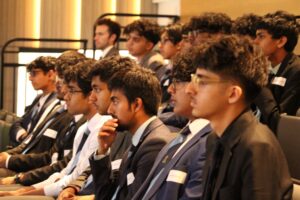 The one-day event gave pupils the chance to hear from leading doctors across a range of specialisms – several of whom are involved in medical research – and to talk to current medical students.
The one-day event gave pupils the chance to hear from leading doctors across a range of specialisms – several of whom are involved in medical research – and to talk to current medical students.
In 2024, a total of 38 QE leavers secured university places to read Medicine.
Featuring talks and networking opportunities, the conference, called MedConnect 2025, was organised by Soham Kale, Surya Senthilkumar and Sharvesh Sudhagar, with support from Head of Year 12 Akhil Gohil and other staff.
“We designed this networking event to give our future medics a deeper and wider understanding of what medicine and its specialties truly involve – beyond the textbook,” said Soham.
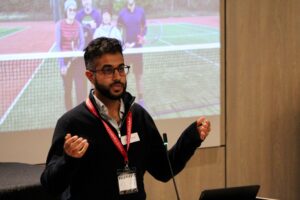 “This was achieved through a series of insightful talks delivered by some of the most inspiring doctors and medical students we could have asked for, followed by a vibrant networking session in our atrium.”
“This was achieved through a series of insightful talks delivered by some of the most inspiring doctors and medical students we could have asked for, followed by a vibrant networking session in our atrium.”
Among the guests was Old Elizabethan Dr Akash Gandhi (2005–2012), a GP and founder of TheUKCATPeople, which coaches young people to help them gain places at UK medical, dental and veterinary schools.
The other guests and speakers at the conference, which was based in the Friends’ Recital Hall, were:
- Dr Mark Kristiansen – Head of Genomics (UCL)
- Dr Giulio Anichini – Neurosurgeon (Imperial College London)
- Dr Thendral Murugesan – Consultant gastroenterologist (Royal Free London NHS Foundation Trust)
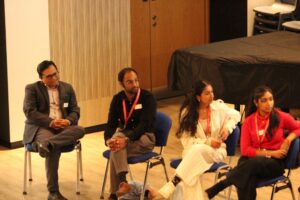 Dr Jayanta Banerjee – Neonatal consultant (St Mary’s Hospital, Imperial College Healthcare NHS Trust)
Dr Jayanta Banerjee – Neonatal consultant (St Mary’s Hospital, Imperial College Healthcare NHS Trust)- Dr Arangan Kirubakaran – Neonatal registrar (St Mary’s Hospital, Imperial College Healthcare NHS Trust)
- Gayathri Giritharan – Third-year medical student (Imperial College London)
- Vanathi Pugalendhi – Third-year medical student (Imperial College London).
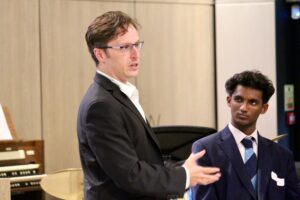 Soham added: “Organising and hosting this event was a huge learning experience. From coordinating speakers and logistics to dealing with last-moment changes under pressure, it has pushed me to grow as both a team-player and a communicator. It also reaffirmed my passion for Medicine – not just as a career, but as a field built on human connection and constant learning.”
Soham added: “Organising and hosting this event was a huge learning experience. From coordinating speakers and logistics to dealing with last-moment changes under pressure, it has pushed me to grow as both a team-player and a communicator. It also reaffirmed my passion for Medicine – not just as a career, but as a field built on human connection and constant learning.”
He thanked the speakers and the QE staff who supported the trio behind the conference, especially Mr Gohil: “His unwavering support and guidance made this entire event possible. Throughout this process, you constantly challenged us to reflect, question and develop – helping us grow not only in our leadership but also as people.”


 Although entrants compete as individuals, they are placed in national teams. Harik was part of a five-strong UK team, all of whom won medals. Three took bronze, while one was another silver winner, albeit with a lower score and ranking than Harik’s. Medals were awarded to the top 208 competitors.
Although entrants compete as individuals, they are placed in national teams. Harik was part of a five-strong UK team, all of whom won medals. Three took bronze, while one was another silver winner, albeit with a lower score and ranking than Harik’s. Medals were awarded to the top 208 competitors.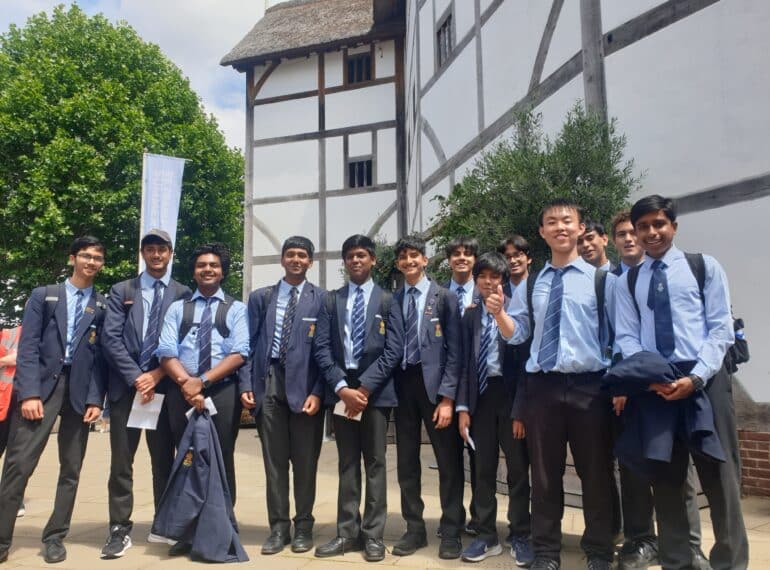
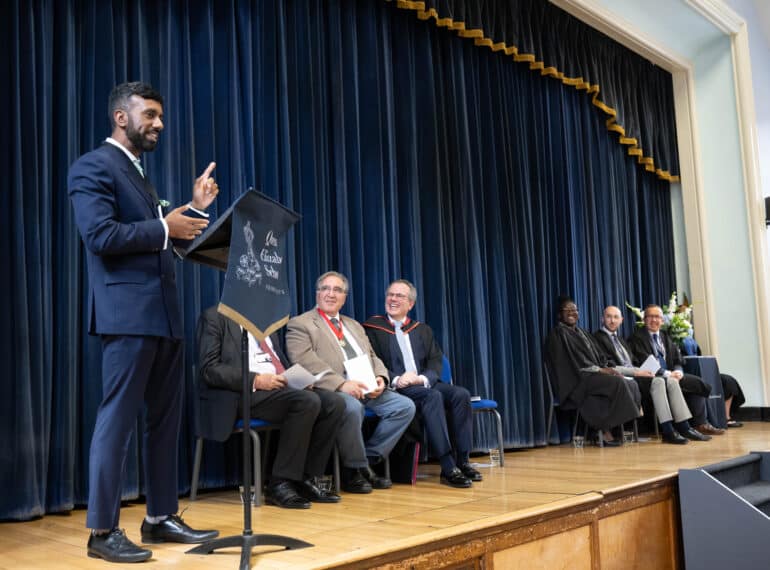
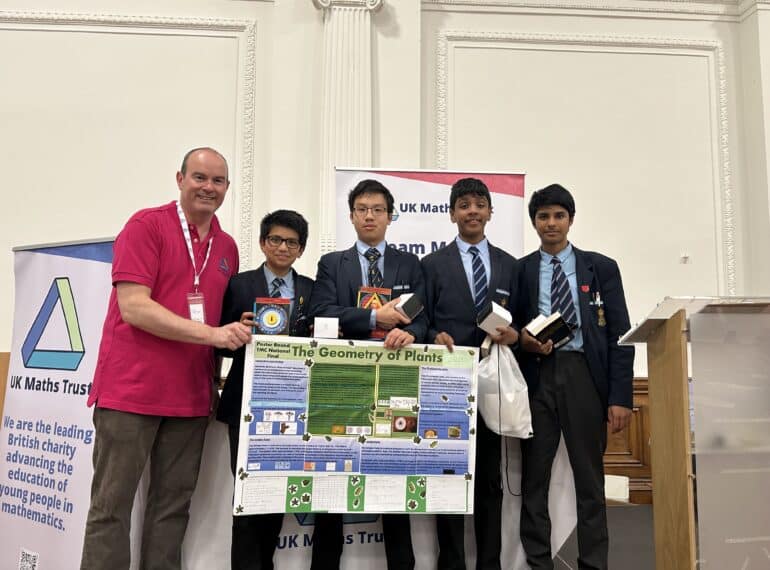
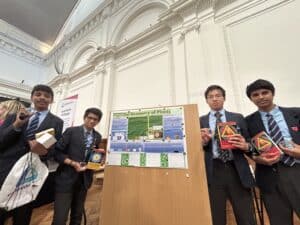 The four, who were competing against 71 other teams, took second place overall in the final, held at the Royal Horticultural Halls in central London.
The four, who were competing against 71 other teams, took second place overall in the final, held at the Royal Horticultural Halls in central London.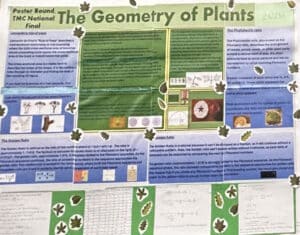 The event consisted of five demanding rounds: the Group Circus, Shuttle, Crossnumber, Relay, and Poster rounds. The rounds are designed to test mathematical thinking, teamwork and resilience.
The event consisted of five demanding rounds: the Group Circus, Shuttle, Crossnumber, Relay, and Poster rounds. The rounds are designed to test mathematical thinking, teamwork and resilience.
 Harik progressed through three rounds of the UK’s top schools Physics competition and has now been chosen for the five-person UK team after performing well among some 14 high-fliers at a selection camp (pictured).
Harik progressed through three rounds of the UK’s top schools Physics competition and has now been chosen for the five-person UK team after performing well among some 14 high-fliers at a selection camp (pictured). Harik’s invitation to the UK BPhO training and selection camp in Oxford (pictured) followed on the basis of his performance in Round 1 and 2.
Harik’s invitation to the UK BPhO training and selection camp in Oxford (pictured) followed on the basis of his performance in Round 1 and 2.